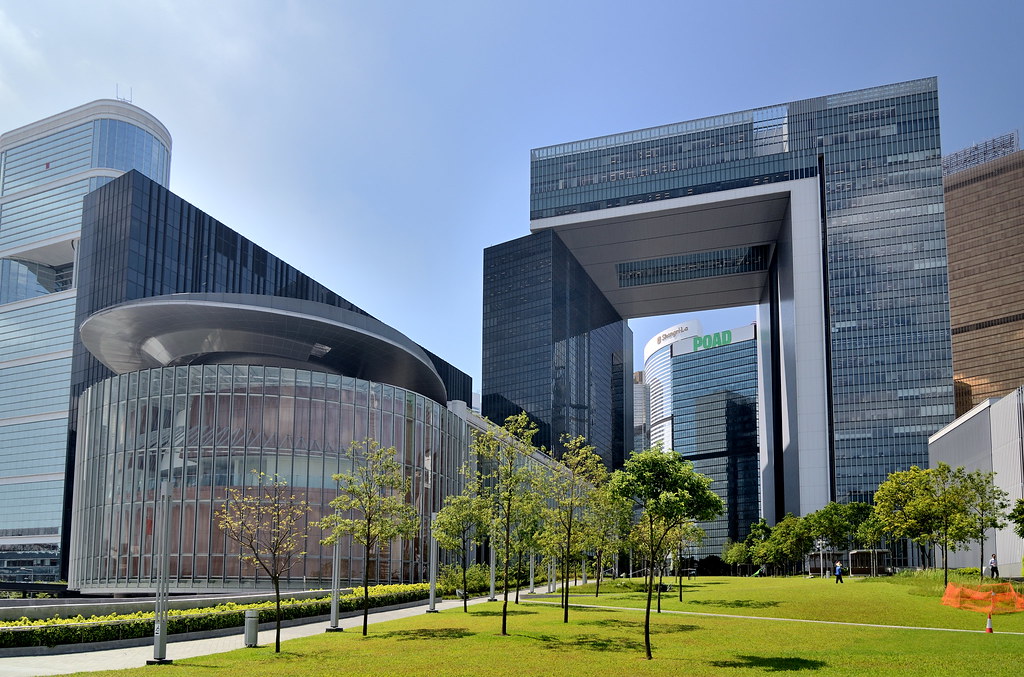Hong Kong’s Proposed Extradition Law and International Human Rights: Legalized Kidnapping?
In a growing number of cases over the past few years, China has used state-sponsored kidnapping as a means of delivering rough justice to individuals abroad. Both Chinese citizens and foreign nationals have been forcibly repatriated back to China, many to disappear into long-term incommunicado detention for months or even years at a time.

In a growing number of cases over the past few years, China has used state-sponsored kidnapping as a means of delivering rough justice to individuals abroad. Both Chinese citizens and foreign nationals have been forcibly repatriated back to China, many to disappear into long-term incommunicado detention for months or even years at a time. Prominent examples include the Hong Kong-based publisher Gui Minhai, who was kidnapped from his home in Thailand in October 2015 and held for roughly two years without charge or trial. He was released into a form of modified house arrest in October 2017. As far as is known, Gui was denied access to an attorney for the entire time he was in detention.
At times, Chinese authorities have even snatched individuals from Hong Kong, even though mainland security officials are legally barred from operating in Hong Kong without permission. Billionaire businessman Xiao Jianhua was nabbed from Hong Kong’s Four Seasons Hotel in January 2017, for example, and spirited across the border into China. More than two years later, it is unclear when or even whether he will face a criminal trial.
Given this deeply disturbing history, it’s not surprising that several states have refused to enter into extradition agreements with China. Simply put, given China’s failure to protect the due process rights of individuals who have been returned—in many cases forcibly—to China, states have been wary of creating a formal mechanism to ease such returns, when doing so would likely expose even more individuals to a legal black hole.
Yet, despite Beijing’s troubling record, the Hong Kong Special Administrative Region (SAR) government has chosen to push forward a controversial—and potentially quite damaging—series of amendments to Hong Kong’s extradition law. (Specifically, the government proposed in March to amend Hong Kong’s Fugitive Offenders Ordinance and its Mutual Legal Assistance in Criminal Matters Ordinance.) Ostensibly meant to create a case-by-case mechanism for dealing with extradition to countries with which Hong Kong does not have an extradition treaty, the amendments would, for the first time, create a legal mechanism by which individuals could be rendered from Hong Kong back to mainland China.
Many observers fear that the draft bill, if enacted, would be used by Beijing to grab individuals that it couldn’t otherwise get its hands on. Rights activists and other critics of the Communist Party based in Hong Kong certainly have cause for concern—Hong Kong has long been a safe harbor for all sorts of peaceful activities that would be unthinkable on the mainland. For years, top rights advocacy groups such as Amnesty International and Human Rights Watch have maintained offices in Hong Kong. Their ability to operate safely, and to ensure the security of staffers working on more sensitive projects, would be called into question by this law. If locally based staff came into possession of information that Beijing deemed sensitive, for example, might not the Chinese government seek to have them repatriated to the mainland and prosecuted for revealing state secrets?
Activists and rights lawyers aren’t the only ones who have expressed concerns about the bill: Many prominent businesspeople, including members of both local and international business groups, have spoken out against it, as have top government officials in Washington, London and Brussels. Chinese officials have a tendency to use legal tools to squeeze or even punish foreign businesspeople when deals go sour. There is concern that the Chinese government might plan to use the new extradition mechanism to grab businesspeople operating out of Hong Kong if certain proposals fail to bear fruit.
Despite these concerns, the Hong Kong government’s draft amendments bill contains several troubling provisions. Most prominently, the draft bill excludes the Legislative Council, Hong Kong’s legislature, from any role in overseeing the extradition process to countries without a treaty arrangement, even though the council has the power to block extraditions under existing law. Instead, the draft amendments bill assigns Hong Kong’s chief executive the leading role in the handling of extradition requests from nontreaty states.
The draft bill’s human rights safeguards are also quite weak. The bill does not explicitly empower Hong Kong’s courts to deny extradition if the individual’s right to a fair trial is at risk, for example. Instead, the courts will continue to exercise relatively narrow review powers. They will not pass judgment on foreign legal systems but, rather, confirm that any given extradition request was properly presented and handled.
The Hong Kong SAR government has made much of the fact that extradition will be blocked for political crimes and be disallowed for death penalty cases. SAR officials have also pointed out that extradition requests can be denied in cases that the government believes involve discrimination on the basis of race, religion, nationality or political opinion. Finally, the government has pointed to the role of Hong Kong’s courts in reviewing extradition requests as a key procedural safeguard, one that will ensure proper functioning of the new regime.
As this post was going to press, the Hong Kong government added further safeguard provisions to its proposal, including a pledge to allow extradition under the law only for crimes punishable by seven years or more in jail. The rights protection provisions included in the bill are certainly welcome. But a review of the development of extradition law worldwide over the past several decades also highlights many shortcomings in the Hong Kong government’s proposed changes.
For the past 30 years, many states have sought to better balance their treaty-based extradition obligations with their commitments under international human rights law. In the 1989 Soering case, the European Court of Human Rights held that the U.K. could not extradite a German national to the United States on a murder charge, given that he faced potential violations of rights under the European Convention on Human Rights (ECHR) on death row in the United States. The case was a landmark development: The Soering verdict made clear that sending states must safeguard the rights of individuals whose extradition has been requested, even if that means—at least in some cases—refusing to honor a properly executed extradition request.
In the decades since the Soering decision, the case and others like it have led to a rethinking of the hands-off approach that many states traditionally have taken to extradition requests. The U.K., for example, amended its Extradition Act in 2003 to empower judges to decide “whether the person’s extradition would be compatible with the Convention rights” contained in the ECHR and to refuse to allow extraditions in those cases when an individual’s rights were at risk. Similarly, the Canadian government strengthened the human rights provisions of its Extradition Act when it amended the law in 1999.
States like the U.K. and Canada are not alone. International agencies have also embraced the importance of integrating core rights concerns into extradition laws. When it updated its Model Law on Extradition in 2004, for example, the United Nations Office on Drugs and Crime added a provision on the right to a fair trial, making clear that a sending state could decline to extradite an individual if the individual being sought “would not receive the minimum fair trial guarantees in criminal proceedings in the requesting State.”
For its part, the United States has taken a more conservative approach to reforming U.S. extradition law. U.S. courts have generally held that their hands are tied by the so-called “rule of non-inquiry,” which forbids American judges from passing judgment on foreign legal systems. In recent years, some courts have begun to chip away at the non-inquiry doctrine. Still, it remains to be seen whether U.S. courts will take on a more aggressive role in reviewing extradition requests, or whether they will continue to defer to the executive branch.
That said, the U.S. government’s long-standing refusal to enter into an extradition treaty with China has been driven in no small part by human rights concerns. In other words, while the U.S. may not be leading the revolution in reforming existing law and practice, it has nonetheless largely managed to hold the line in terms of refraining from entering into binding, reciprocal extradition agreements with countries like China that cannot guarantee a returnee’s basic human rights.
The Hong Kong government should take note: Extradition law is built on the presumption that receiving states will engage in just and fair treatment of extradited individuals, including through the provision and protection of core due process rights. Both the U.S. and—with one or two exceptions—the rest of the developed world have declined to enter into an extradition treaty with China precisely because these governments lack faith in China’s ability and willingness to deliver on those core rights protections in all cases. It is unclear why the Hong Kong government would come to a different conclusion.
Given this growing body of comparative law, the Hong Kong government’s failure to incorporate best practices into its own draft law seems strange. And its unwillingness, at least thus far, to bend to public pressure to amend the law is similarly difficult to fathom: If the law must be passed immediately, why not take every possible step to allay public concerns over the existing draft?
The Hong Kong government has also failed to adapt the law to Hong Kong’s particular circumstances. Given Beijing’s influence, both formal and informal, over all three branches of the Hong Kong government, the government needs to construct procedural safeguards that will blunt Beijing’s potential sway. For example, Hong Kong’s leader, Chief Executive Carrie Lam, was selected by a small circle of pro-Beijing electors; she was not directly elected by the people of Hong Kong. This means that she may be loath to cross Beijing, for fear of undermining her potential for re-selection. It also means, sadly, that there is no democratic check on her use—or potential abuse—of her authority under the proposed extradition amendments.
Hong Kong’s world-class judiciary is meant to be independent. Yet, in recent years, Hong Kong’s courts have found themselves facing increasing political pressure. Under Hong Kong’s Basic Law, Beijing retains the authority to interfere in highly charged human rights cases and has exercised that power as recently as 2016. More generally, as the political climate in Hong Kong has continued to decline, Hong Kong’s judges have expressed growing fears that they too will be squeezed by Beijing. One judge told an international journalist that “there is a marked climate of unease among my peers,” which “wasn’t there a few years ago.”
As the debate over the proposed extradition law amendments intensified, three Hong Kong judges took the unusual step of speaking—anonymously—to a Reuters journalist, to express the judiciary’s concerns about the government’s bill. “Many of us see this as unworkable,” one judge said. “And we are deeply disturbed.”
Given the growing pressure on Hong Kong’s political and legal institutions, it is unclear whether the judiciary will be able to resist an order from both the SAR government and, by extension, Beijing to approve any particular extradition request, especially given its limited mandate for review under the proposed amendments. In that context, the move to eliminate the Legislative Council’s role is all the more perplexing, and all the more regrettable.
Going forward, what should the Hong Kong government do? It seems highly unlikely that the government could suggest procedural safeguards that will address all of the above concerns. Therefore, Chief Executive Lam should withdraw the proposed amendments bill immediately. She should then make the case, both to the people of Hong Kong and to the international community, that amendments to the extradition bill are truly needed. Failing that, the Lam administration should table the proposed changes indefinitely and move on to other pressing matters.





